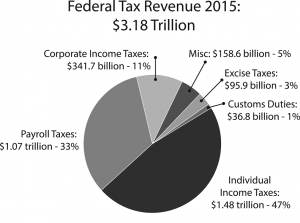When Bernie Sanders mentioned that Cuba’s population has a high rate of literacy, US politicians and their media echoes acted like he had endorsed the Devil Incarnate.
Maybe they were worried that if news about Cuba didn’t come wrapped in a package labeled “DYNAMITE! Do not open!” we might start wondering why capitalism can’t deliver some of the goods that socialism has.
Health care was an initial focus of Cuba’s revolutionary government. Over the decades a strong system of medical schools, research institutes and community clinics have made the promise of guaranteed health care a reality. In two measures of health status, Cuba ranks higher than the US – life expectancy at 79 years is above that of the US and infant mortality at 4.4 births per 1000, below.
Cuba is known in many parts of the world for its preparedness in cases of natural disaster, with a long history of medical diplomacy, sending thousands of doctors on missions worldwide. It is also a Caribbean island uniquely vulnerable to natural disasters like hurricanes. In 2014, the government adopted a law granting a month’s pay to anyone unable to perform their job due to natural, health or technological disasters, with 60% of their pay continuing until things returned to normal. After the devastation of Hurricane Irma, Cuba’s recovery was quick, while Puerto Rico struggled for months.
Take the country’s response to the Coronavirus. Cuba’s biomedical research had come up with an antiviral drug — which has become one of the medications used by the Chinese in treating coronavirus patients. In March, when overwhelmed Italian officials contacted the Cuban ambassador to Italy, and Cuba dispatched 53 doctors to Lombardy where they are serving along with doctors from China.
Cuban doctors are also en route to Brazil to help combat coronavirus. Several thousand had been practicing in rural areas of that country under the Workers’ Party government. The right-wing politician Jair Bolsonaro during his campaign attacked the Cuban doctors as “spies and terrorists,” and when he took over the government, he expelled most of them. A year later, in March, his government’s minister of health has begged the Cubans to come back. Cuban doctors have also been dispatched to Venezuela, Nicaragua, Jamaica and other countries to work during the pandemic.
Earlier, a British cruise ship with infected passengers was stuck at sea when no Caribbean port would allow it to dock. At the request of London, Cuba permitted the ship to dock and organized disembarkation with hospital care for confirmed coronavirus cases, quarantine for others, and a return home by British Airways for nearly 700 others.
As for the handling of the coronavirus at home, Cuba has hesitated like other Western Hemisphere countries. Leaders did not close its borders to tourists and others, or implement social distancing measures until sometime after the first cases of coronavirus were confirmed. By the third week of March, regulations restricting movement and closing schools were put in place, and the Ministry of Public announced that family doctors are monitoring the symptoms of 37,778 Cubans. At the same time, the government began sending doctors, nurses, and medical students door-to-door across the island, looking for people with fever, cough and shortness of breath, symptoms of COVID-19. It’s not known whether the country has testing kits.
Sources: The Miami Herald, BBC, TeleSur and World Health Organization statistics

Be First to Comment